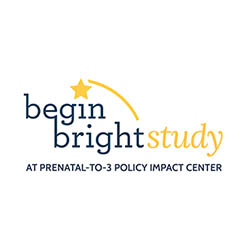Join thousands of policymakers, scholars, and practitioners across the country to learn how to strengthen state policies that impact the foundational prenatal-to-3 development period, starting with rigorous evidence. You will also get a first look at how your state is doing on the policies and strategies that research shows to be most effective for infants and toddlers, detailed in the streamlined 2021 Prenatal-to-3 State Policy Roadmap.
The second annual National Prenatal-to-3 Research to Policy Summit is hosted by The University of Texas at Austin’s Prenatal-to-3 Policy Impact Center, directed by Dr. Cynthia Osborne. There is no fee to attend.
Click here to register and retweet on Twitter!
ICYMI, check out one of our core resources: Why Do We Focus on the Prenatal-to-3 Age Period?: Understanding the Importance of the Earliest Years
Contact cfrpevents@austin.utexas.edu with questions.



